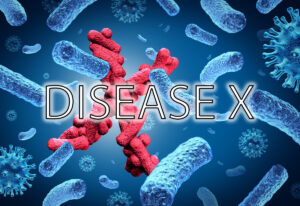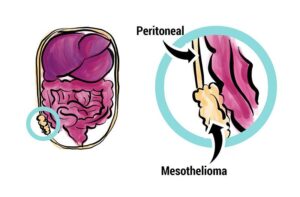Nausea, indigestion, and heartburn are common complaints I get everyday from my patients. People think something is wrong with their tummy. Maybe they have an ulcer in their stomach. But this is not always true. Sometimes a bad lifestyle can also create these problems. But first, let me tell you what are the common complaints regarding gastric (tummy) problems.
Common symptoms in gastric problems
Common problems are:
- Feeling of pain on the upper abdomen after eating
- Regurgitation of food
- Felling of the fullness of tummy without eating much
- Nausea or vomiting
- Loss of interest in food intake
- Bloating
- Sour taste and bad smell in the mouth
Gastric problem in healthy persons
A healthy person can also suffer from the above-mentioned gastric problems because of:
- Wrong lifestyle
- Too much stress in studies or work environment can cause dyspepsia or indigestion.
- A sedentary lifestyle can make the food movement in the digestive tract slow leading to gas formation and a sense of fullness.
- Insomnia can increase stress levels and constipation giving rise to a variety of tummy problems.
- Drinking too much coffee, eating too many nuts, dairy products, and certain vegetables. These are linked to increased gas formation in the digestive tract.
- Smoking and alcoholism.
- Wrong food habit
- Having stomach-full of meals. When you eat more than your stomach’s capacity the foods will always try to come out through your mouth!
- Eating deep fried, smoked, spicy, and hot foods can increase the irritation inside your food pipe and stomach.
- Eating tinned food and packaged food is also not good. This type of food contains a large amount of sugar, salt, and chemical preservatives.
- Polypharmacy
- Taking medicines for other health conditions can also upset the stomach as their side effect. For example, painkillers can injure the inner lining of the stomach, antihypertensive medication nifedipine can decrease the tone in the sphincter present at the lower end of the food pipe, and antibiotics can cause an increased amount of acid secretion in the stomach.
- Self-medication: Some people self-medicate themselves for stomach upset. This is easy to do because many indigestion medications are available over the counter. If you drink too many antacids and proton pump inhibitors it can cause a non-acidic environment in the stomach. A total non-acidic environment is not ideal for the killing of bacteria that we naturally intake with our food. As a result, bacteria proliferate in the stomach cause gas formation, pain, and flatulence.
Indigestion due to stomach problems
Sometimes the native stomach problems can cause the abovementioned symptoms.
- Gastroesophageal reflux disease (GERD).
- Non-ulcer dyspepsia: Here increased acid formation in the stomach cause heartburn, nausea, vomiting, and bloating. This is usually treated with a short course of proton pump inhibitor.
- Peptic ulcer disease: An ulcer can form on the inner lining of the stomach. This ulcer causes pain after eating, bleeding through mouth or back passage, anemia, vomiting, nausea, bloating, and indigestion. If not treated, this can cause stomach cancer in the long run. Usually, Helicobacter pylori are found to be associated with ulcer formation. It can be diagnosed by endoscopy. Triple therapy (two antibiotics and one proton pump inhibitor) is given for 14 days to eradicate helicobacter pylori from the stomach. Later hydrogen breath test can be done to confirm the eradication.
- Dysmotility: Certain diseases of the food pipe e.g. achalasia causes loss of peristalsis and failure to relax the lower esophageal sphincter. This can cause regurgitation, heartburn, aspiration pneumonia, cough, and foul smell from the mouth.
Indigestion due to other diseases
Some systemic diseases can cause stomach upset and indigestion. The common diseases are:
- Diabetes: Diabetes, in the long run, can cause nerve damages around the gastrointestinal tract. This leads to distention and loss of peristalsis in the gastrointestinal tract. As a result, constipation, bloating, and bacterial growth in the bowel happen.
- Obesity: Obesity is linked to obstructive sleep apnea, diabetes, metabolic syndrome, and hiatus hernia. All these diseases can cause regurgitation of food from stomach to mouth.
- Rheumatological diseases: Some rheumatological diseases, for example, SLE, systemic sclerosis, etc. can cause esophageal dysmotility leading to regurgitation.
- Infection: Infection such as Chagas disease can cause megaesophagus and dysmotility.
Treatment
- Lifestyle modification
- Reduce stress
- Exercise regularly
- Avoid smoking and alcoholism
- Good sleep hygiene
- Reduce weight if you are overweight or obese
- Food habit change
- Avoid processed food
- Avoid too much coffee
- Avoid smoked, deep-fried, spicy, and hot foods
- Avoid too much salt
- Avoid too much dairy products
- Avoid any known food that causes bloating in your tummy
- Avoid taking medicines without your doctor’s prescription.
When you must visit your doctor
If you have any one of the following signs then visit your doctor as soon as possible. These signs are called the reg flags of the gastrointestinal tract. It means the presence of these signs may indicate a sinister cause such as cancer.
- The feeling of a lump in the abdomen.
- Family history of cancer in abdomen or ovary.
- Anemia
- Blood loss from anybody orifices or black stool.
- Unintentional weight loss.
- Age > 60
- Having the symptoms of indigestion for > 3 weeks.
- Vomiting too much.
- Constipation and not being able to pass wind.
- Pain during swallowing.
- Too much abdominal distention.



